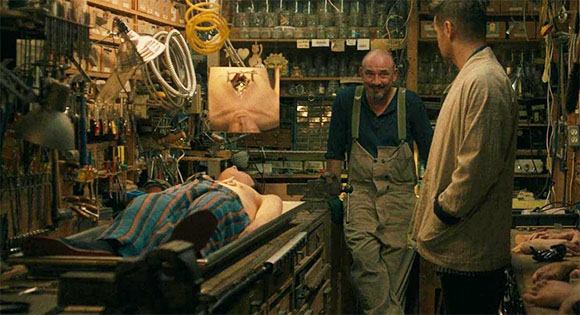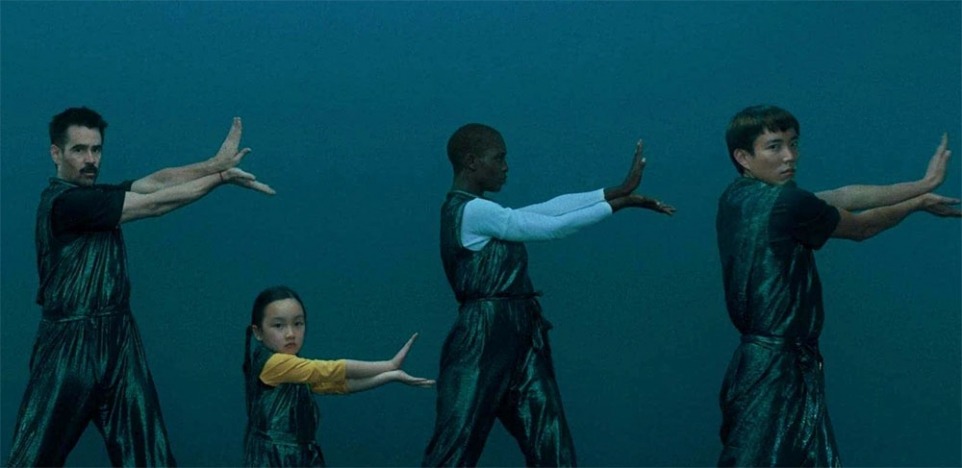Director Kogonada’s 2017 feature film debut Columbus was a quiet marvel that deftly balanced melancholy and wonder, inviting viewers to still ourselves and move slowly through the everyday with a sort of reverent and careful consideration we rarely allow. Follow-up After Yang moves with the same subtle rhythms. The setting might be futuristic and its genre far more akin to science fiction than its predecessor, but this breathtaking exploration of what makes a human aches with the same subtly seismic shifts that have become Kogonada’s trademark. It’s a tone poem that unfolds with time, images,and ideas rippling long after its brief, understated running time ends.

Yang (Justin H. Min) is the gentle glue that holds his family together. He’s also an android (a “technosapien” in the film’s vernacular) who has been designed, purchased, and maintained in order to aid parents Kyra (Jodie Turner-Smith) and Jake (Colin Farrell) in raising and educating their adopted daughter from China Mika (Malea Emma Tjandrawidjaja). Yang has taken his role seriously and playfully, bonding with Mika in ways that Jake hasn’t even attempted. But Yang’s inner workings are a mystery and when he malfunctions and is taken out of commission, Jake sets out to restore him to working order. As Jake journeys, he is thrust into an existential interrogation of Yang’s memory bank which reveals Jake’s disconnect from his own life.
What adds up to create and sustain a truly alive soul is After Yang’s central question. Yang’s memory bank is set to record moments that Yang’s system deems worthy of note. Jake witnesses the private interactions that Yang has had with the beings in his electric life, most notably with an enigmatic young woman named Ada (Haley Lu Richardson) who appears to have captured Yang’s non-human heart in unexpectedly human ways.
Each detail of After Yang adds to an increasingly complex mix. Jake is an expert tea seller who prides himself on understanding the layers and notes in a single brewed cup, but as images and impressions from Yang’s expansive experience compound, Jake comes face-to-face with the rich flavors of his own life that he has long ignored. The film follows this exploration delicately and deliberately. Much like the challenge that Jake himself receives, the film is an intentional unfolding that requires concentrated patience from its audience.

After Yang might at first feel like a frustratingly drowsy meditation. It unfurls as breath, its most savory powers almost imperceptible. But this is a radical and complex text that invites (and sometimes even rewards) a yearning dive into unanswerable questions of existence. Though its at-times opaque answers might still feel ineffable by its end, this is an offering to contemplate, to return to, to sit with, to not try to explain too hurriedly, to allow to steep. Will this be to all tastes? Of course not. But neither is prayer. After Yang is not only about the practice of paying attention; it’s an open-hearted invitation to embody it.
